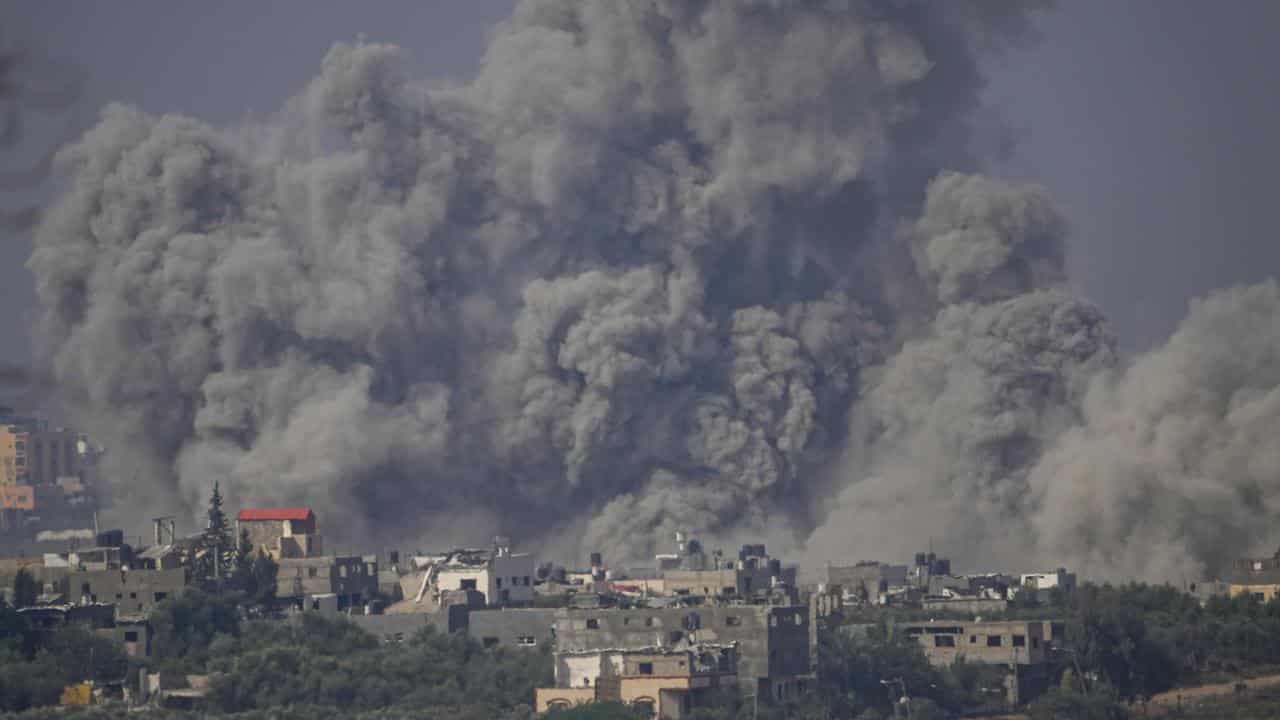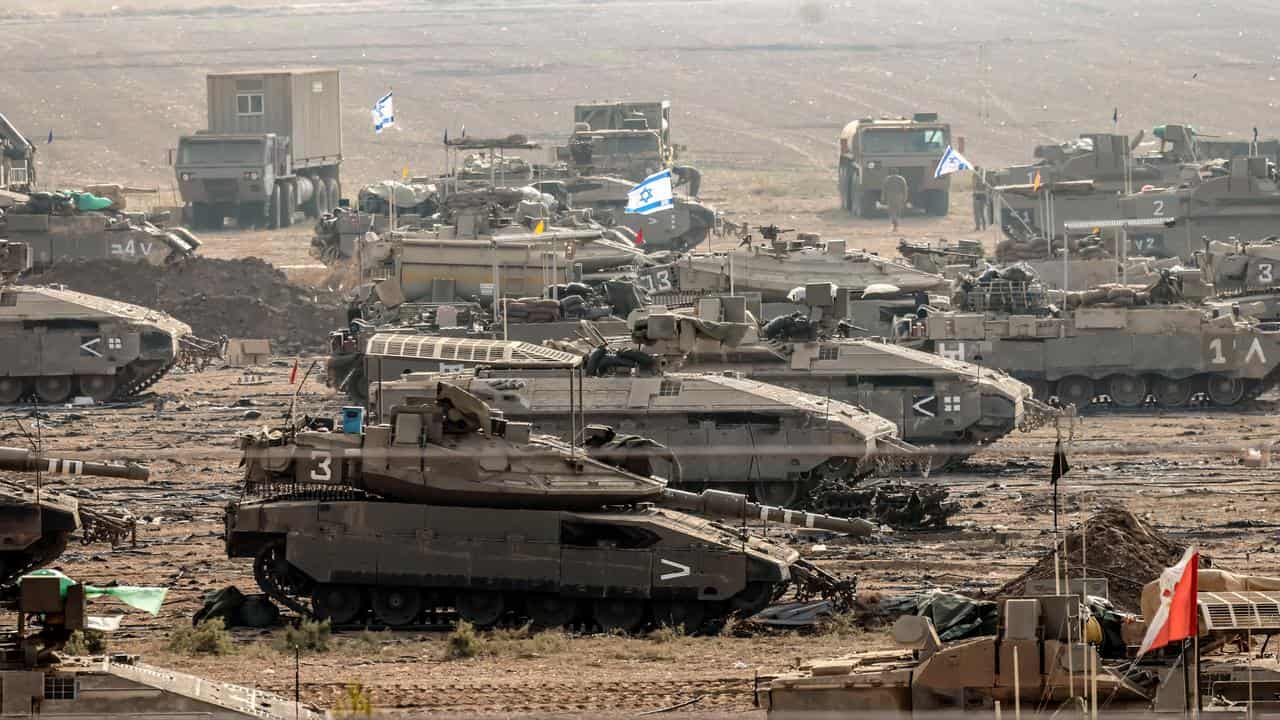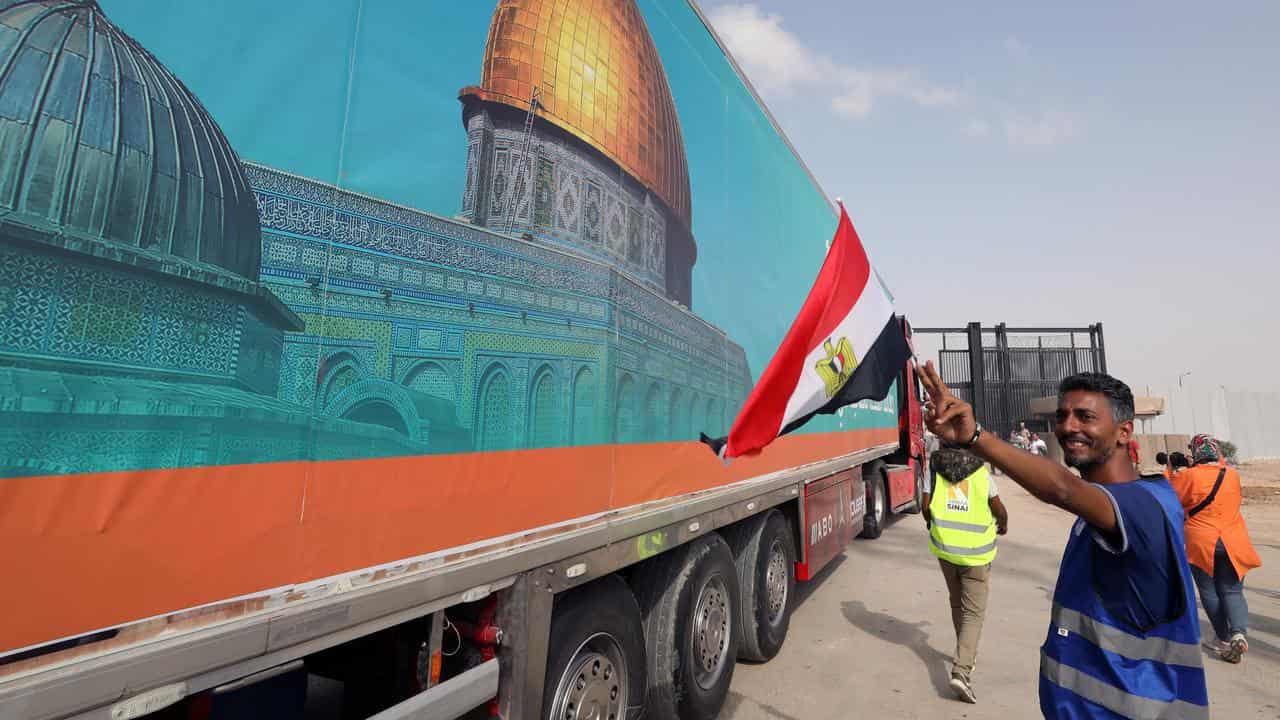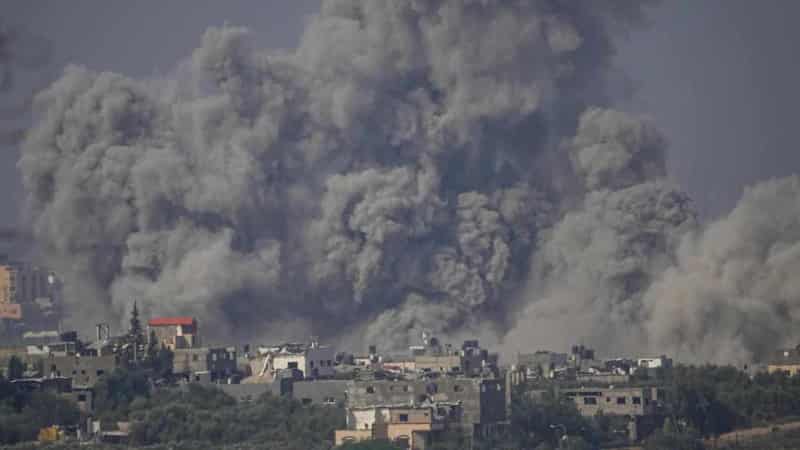
Israel has bombarded Gaza with more air strikes as its soldiers fought Hamas militants on the ground in raids within the besieged Palestinian enclave.
In signs that the conflict was spreading, Israeli aircraft also struck southern Lebanon overnight and Israeli troops fought Palestinians in the occupied West Bank, residents said.
Some aid was trickling over one border crossing into Gaza - but only a fraction of the amount needed.

Authorities in Gaza said at least 4600 people had been killed in Israel's two-week bombardment.
That was triggered by a Hamas October 7 rampage on southern Israeli communities in which 1400 people were killed and more than 200 were taken into Gaza as hostages.
Both Israel and Hamas reported overnight clashes in Gaza.
Israel said on Monday that ground forces mounted limited raids to fight Palestinian gunmen and that air strikes were being focused on sites where Hamas was assembling to attack any wider Israeli invasion.
"During the night there were raids by tank and infantry forces. These raids are raids that kill squads of terrorists who are preparing for our next stage in the war. These are raids that go deep," chief military spokesman Rear Admiral Daniel Hagari said in a briefing.
The raids also tried to gather information on the 222 hostages being held by Hamas, he said.
Hamas's armed wing, the Izz el-Deen al-Qassam Brigades, said its fighters engaged with an Israeli force that infiltrated Gaza and destroyed some Israeli military equipment.
The group said the infiltration by what it described as an armoured force took place east of Khan Younis in southern Gaza.
"Fighters engaged with the infiltrating force, destroying two bulldozers and a tank and forced the force to withdraw, before they returned safely to base," a statement said. There was no Israeli comment about the destruction of equipment.
The Al-Qassam Brigades also on Monday said they were firing missiles on the south Israeli towns of Ashkelon and Mavki'im.
Earlier on Monday, the Israeli military said that in the past 24 hours it had struck more than 320 targets in Gaza, including a tunnel housing Hamas fighters, dozens of command and lookout posts, and mortar and anti-tank missile launcher positions.
Israeli troops and tanks are now massed on the Israeli-Gaza border but how soon they might launch a ground invasion aimed at rooting out Hamas was not clear.
Asked by Israeli Army Radio if Washington was pressuring Israel to hold off, Israel's deputy ambassador to the US Eliav Benjamin said: "They understand that we are conducting the war in accordance with our interests. In the end of the day, we will do what we need to do when we need to do it."
The UN humanitarian office (OCHA) said about 1.4 million of Gaza's 2.3 million population were now internally displaced, with many seeking refuge in overcrowded UN emergency shelters.
Israel has ordered Gaza residents to evacuate the north. But the OCHA said it believed hundreds and possibly thousands of people who had fled were now returning to the north due to bombardments in the south and lack of shelter.

Along Israel's northern border with Lebanon, the Iran-backed Hezbollah group has clashed with Israeli forces in support of Hamas in the deadliest escalation of frontier violence since an Israel-Hezbollah war in 2006.
Early on Monday, Israeli aircraft struck two Hezbollah cells in Lebanon that were planning to launch anti-tank missiles and rockets toward Israel, the Israeli military said. Israel also struck other Hezbollah targets, including a compound and an observation post, it said.
Hezbollah said on Monday one of its fighters was killed, without providing details. Israel's military said seven soldiers have been killed on the Lebanese border since the latest conflict began.
In the West Bank, two Palestinians were killed at the Jalazone refugee camp near Ramallah, the Palestinian health ministry said.
The UN humanitarian office said the volume of aid entering so far was just four per cent of the daily average before the hostilities and a fraction of what was needed.









